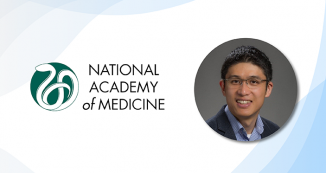
03 Nov High World Rankings for UW Medicine Research
The University of Washington has moved up two spots to No. 25 of the top 1,000 research institutions worldwide. This is in large part due to the quality of medical research and faculty at the School of Medicine. These rankings are published by the Center for World University Rankings (CWUR), which aims to issue objective and consistent measurements of education programs, faculty prestige, and research caliber. According to their website, the eight indicators used by CWUR are:
- Quality of Education, measured by the number of a university’s alumni who have won major international awards, prizes, and medals relative to the university’s size [25%]
- Alumni Employment, measured by the number of a university’s alumni who have held CEO positions at the world’s top companies relative to the university’s size [25%]
- Quality of Faculty, measured by the number of academics who have won major international awards, prizes, and medals [25%]
- Publications, measured by the number of research papers appearing in reputable journals [5%]
- Influence, measured by the number of research papers appearing in highly-influential journals [5%]
- Citations, measured by the number of highly-cited research papers [5%]
- Broad Impact, measured by the university’s h-index [5%]
- Patents, measured by the number of international patent filings [5%]
Source: The Center for World University Rankings (CWUR) Methodology
Paul Ramsey, CEO of UW Medicine and Dean of the Medical School, recently wrote an open letter congratulating the faculty and staff on their contributions to the success of the research environment here at the University of Washington. He pointed out that “UW Medicine is a major contributor in 31 subject categories where UW is rated among the top 10 world universities, and in 14 of these categories, we are ranked in the top five.” The full letter can be read below. The Institute of Translational Health Science supports the research environment at the UW School of Medicine through educational and career programs, cultivating resources for investigators, and providing an ecosystem which fosters and promotes innovative discoveries across all health science disciplines. ITHS contributes to each of the eight areas listed above. Our career development programs provide essential learning tools for the translational research workforce, while our structured scholar programs improve essential competencies through mentored training. ITHS also provides ongoing support for faculty and research teams to cultivate new ideas and implement clinical trials through the Research Coordination Center, dedicated space at Translational Research Units, and consultation ranging from technical tools, trial design, bioethics, and commercialization. ITHS resources are widely used across all University of Washington Health Science disciplines.
From Dean Ramsey:
I am pleased to inform you that UW Medicine’s research continues to receive global recognition. Last week, the University of Washington moved up two spots to No. 25 in the world when the Center for World University Rankings released its 2017 rankings of the top 1,000 research-intensive institutions. For more information, see CWUR World University Rankings – 2017. UW Medicine is a major contributor in 31 subject categories where UW is rated among the top 10 world universities, and in 14 of these categories, we are ranked in the top five. The subject rankings are based on the number of research articles in top-tier journals, and in each of these categories, our faculty are either exclusively or partially responsible for the highly regarded research articles.
- Anatomy & Morphology (10th)
- Anesthesiology (6th)
- Audiology & Speech-Language Pathology (2nd)
- Biochemical Research Methods (3rd)
- Biotechnology & Applied Microbiology (4th)
- Critical Care Medicine (6th)
- Emergency Medicine (4th)
- Endocrinology & Metabolism (8th)
- Genetics & Heredity (5th)
- Geriatrics & Gerontology (5th)
- Gerontology (8th)
- Health Care Sciences & Services (8th)
- Health Policy & Services (6th)
- Hematology (7th)
- Immunology (4th)
- Infectious Diseases (4th)
- Mathematical & Computational Biology (6th)
- Medical Informatics (3rd, tied)
- Medical Laboratory Technology (8th)
- Medicine, General & Internal (5th)
- Medicine, Research & Experimental (4th)
- Microbiology (3rd)
- Otorhinolaryngology (10th)
- Parasitology (8th)
- Pediatrics (7th)
- Peripheral Vascular Disease (5th)
- Psychology, Clinical (9th)
- Rehabilitation (10th)
- Toxicology (8th)
- Urology & Nephrology (8th)
- Virology (3rd, tied)
Congratulations on this exciting news and well-deserved recognition of the impact of your research in advancing our mission to improve the health of the public. Sincerely, Paul G. Ramsey, M.D. CEO, UW Medicine Executive Vice President for Medical Affairs and Dean of the School of Medicine, University of Washington







